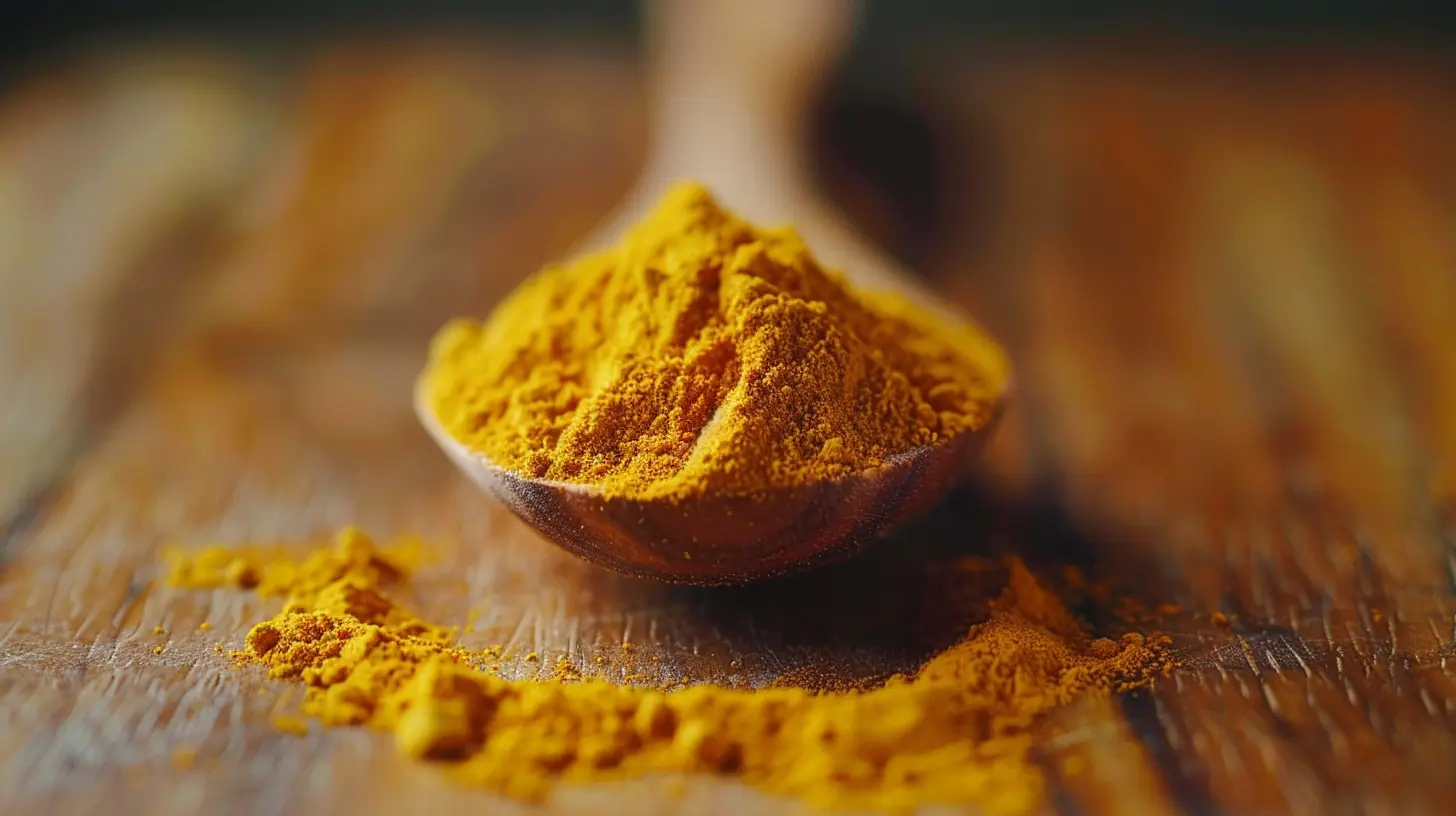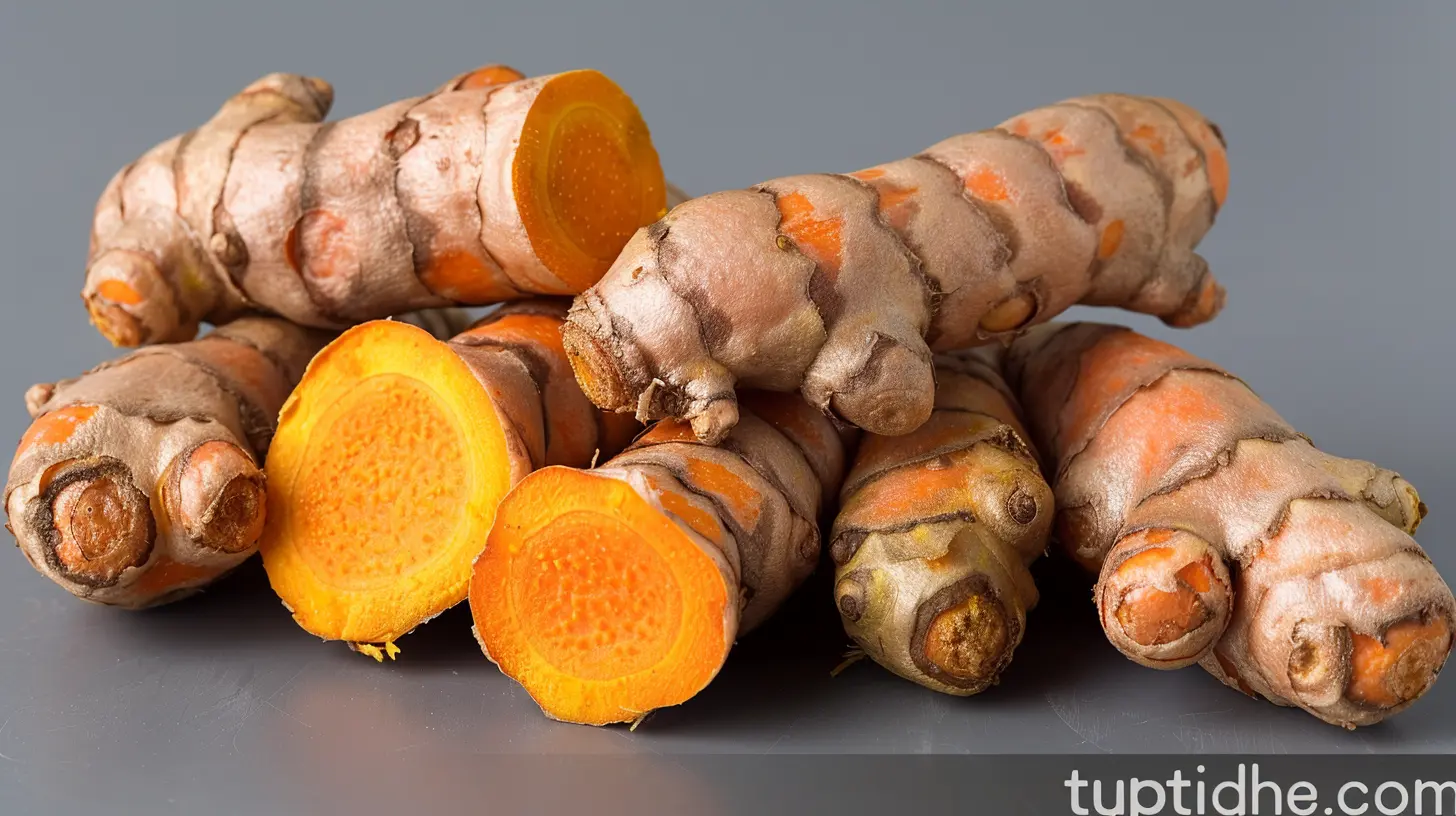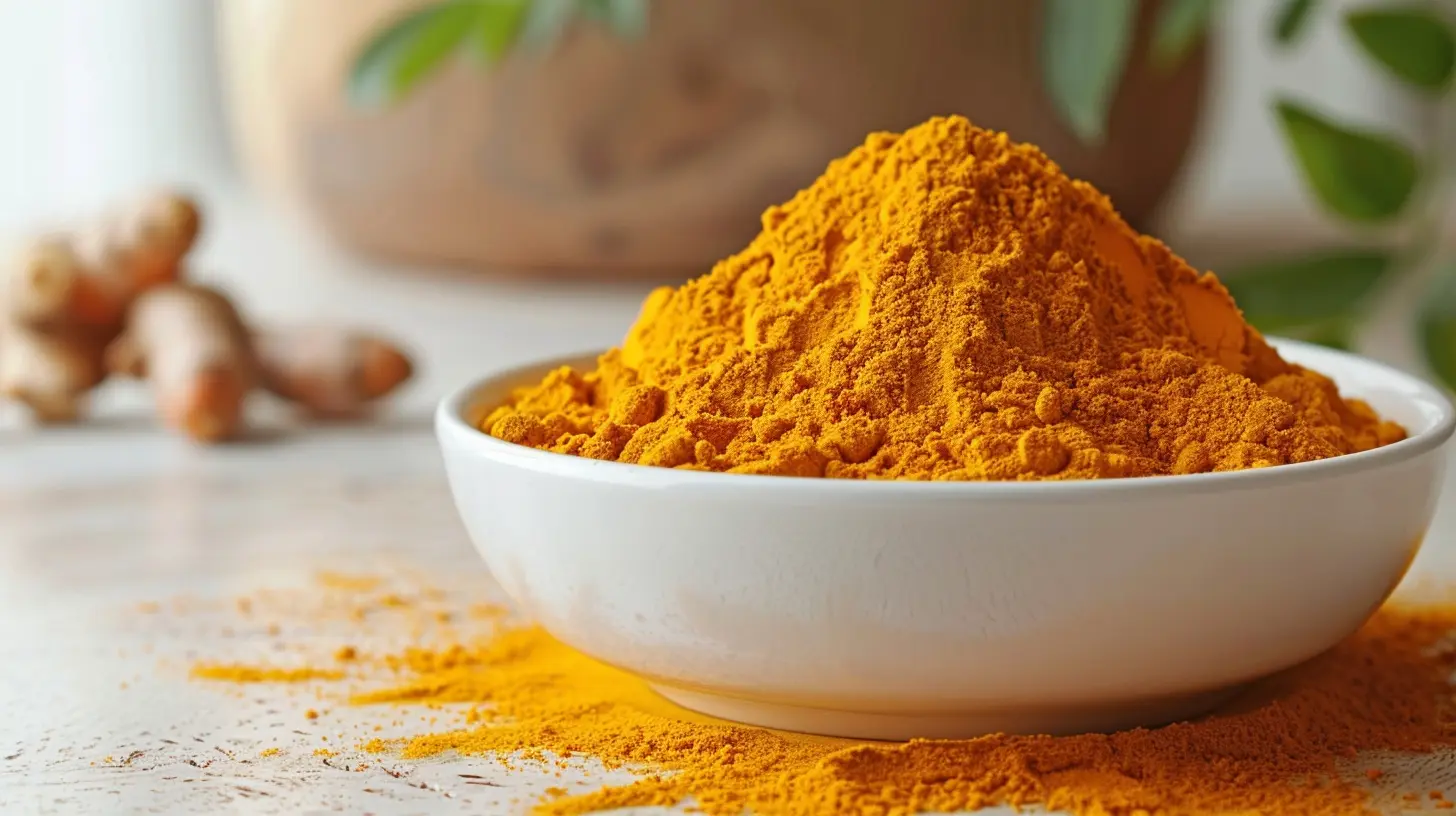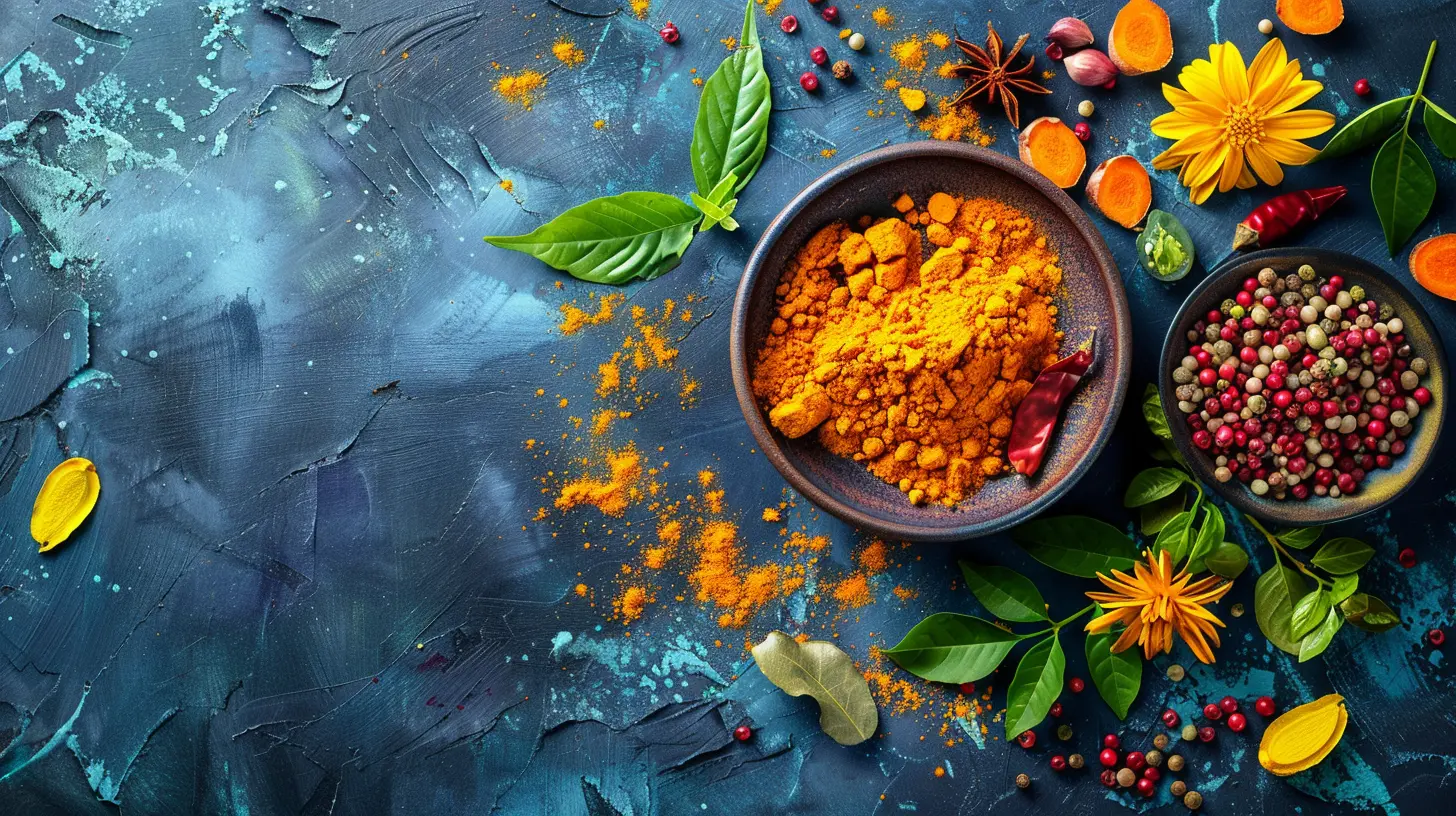Superfood Herb Spotlight: Benefits of Turmeric
7 July 2025
If your spice rack had a superhero, it would be turmeric. Bold claim, right? But hear me out. Turmeric isn’t just that golden powder that gives curry its signature color; it’s been hailed for centuries as a healing powerhouse. Whether you're sipping golden milk, popping turmeric capsules, or swirling it into your smoothie, this bright yellow root has earned a top spot in the world of natural remedies.
Let’s dig into why turmeric is more than just a kitchen staple—and why your body might thank you for adding it to your daily lineup.
What is Turmeric, Really?
Turmeric (scientifically known as Curcuma longa) is a root, part of the ginger family, and has been used for thousands of years in Ayurvedic and traditional Chinese medicine. Most of its magic is thanks to curcumin, the compound that gives it that vivid golden hue and a whole list of health perks.But here’s the kicker — turmeric in its raw form contains only about 2-8% curcumin. That’s why most supplements today are curcumin extracts, often blended with black pepper extract (piperine) to help your body absorb it better.
Yep, turmeric and black pepper are like Batman and Robin — better together.
1. Anti-Inflammatory Powerhouse
Let’s start with what turmeric is best known for: fighting inflammation. Chronic inflammation is the root of many modern diseases — think heart disease, arthritis, Alzheimer’s, and even cancer.Curcumin is a natural anti-inflammatory compound that works similarly to some pharmaceutical drugs. But unlike those meds, it doesn’t come with a laundry list of side effects.
Got achy joints after a workout or a long day at the desk? Turmeric might just be your new best friend.
2. Antioxidant Armor
Imagine your body is like a city. Every day, it’s under attack by free radicals — those unstable molecules that damage your cells, accelerate aging, and trigger disease.Curcumin is a superhero antioxidant that not only neutralizes free radicals but also helps boost your body’s own antioxidant defenses. Talk about double duty.
Your skin, brain, and immune system all benefit when oxidative stress is kept in check. Want to age gracefully? Turmeric could help you glow from the inside out.
3. Brain Boosting Benefits
Ever heard of BDNF? That’s Brain-Derived Neurotrophic Factor — kind of like Miracle-Gro for your brain cells.Low levels of BDNF have been linked to depression and Alzheimer’s disease. Curcumin has been shown to increase BDNF levels, which could improve memory, boost mood, and delay age-related mental decline.
Let’s be honest — we all forget where we left our keys sometimes. But supporting your brain health with turmeric might help keep your memory sharper for longer.
4. Heart Health Hero
Your heart works hard every day, pounding away around 100,000 times. So, it deserves a little TLC.Curcumin may help improve the function of the endothelium — that’s the lining of your blood vessels. Better endothelial function means better regulation of blood pressure, clotting, and overall heart health.
Some studies even suggest that turmeric can reduce bad cholesterol (LDL) and boost good cholesterol (HDL). That’s something your ticker will thank you for.
5. Natural Mood Lifter
Feeling a little...blah? Turmeric might help beat the blues.Curcumin has shown promise in improving symptoms of depression and anxiety by boosting serotonin and dopamine, the “feel-good” chemicals in the brain.
In some trials, curcumin performed as well as some antidepressant medications — without the nasty side effects. Of course, it’s not a magic bullet, but as part of a comprehensive plan, it's certainly worth considering.
6. Supports Healthy Joints
If you’ve ever dealt with stiff knees or creaky fingers, you know how frustrating joint pain can be.Turmeric's anti-inflammatory properties have made it a go-to natural remedy for managing arthritis symptoms. In fact, some people swear it eases their pain better than over-the-counter pain relievers.
Whether you’re dealing with osteoarthritis or just sore joints after too many squats, turmeric might bring some much-needed relief.
7. Aids Digestion
Digestive troubles? Turmeric to the rescue.In traditional medicine, turmeric has long been used to treat bloating, gas, and indigestion. Science backs this up — it stimulates bile production, which helps break down fats and supports smoother digestion.
Turmeric also has prebiotic properties, nourishing the good bacteria in your gut. And let’s face it, a happy gut means a happier you.
8. May Help Prevent Cancer
Now, this is a big one. While we’re not saying turmeric is a cure for cancer (let’s not get carried away), research suggests that curcumin may play a role in preventing certain types of cancer by interfering with cell signaling pathways.It’s been studied for its potential to slow the spread of cancerous cells and even make tumors more responsive to chemotherapy.
Again, it’s not a magic cure — but it’s another reason to keep turmeric in your health toolkit.
9. Skin Health Superstar
Forget expensive creams and serums — turmeric could be your skin’s secret weapon.Thanks to its anti-inflammatory, antibacterial, and antioxidant properties, turmeric can help treat a slew of skin issues: acne, eczema, psoriasis, and even signs of aging.
Some people even use turmeric masks for a natural glow (just be careful — it can stain!). Who knew your favorite spice could double as a beauty product?
10. Strengthens Immunity
Let’s be real — no one has time to get sick. Supporting your immune system isn’t just about taking vitamin C anymore. Turmeric can help rev up your immunity thanks to its antiviral, antibacterial, and antifungal properties.It may even help modulate your immune response, keeping it in balance. Not too weak, not too aggressive — just right.
Think of it as your immune system’s personal coach, keeping everything in top shape.
How to Add Turmeric to Your Diet
Now that you’re probably itching to try turmeric, you’re in luck — it’s incredibly easy to work into your routine. Here are a few tasty and creative ways:- Golden Milk – Warm plant-based milk mixed with turmeric, cinnamon, ginger, and honey. It’s like a hug in a mug.
- Turmeric Smoothie – Add a teaspoon to your morning smoothie for an anti-inflammatory kick.
- Spice Up Your Meals – Toss turmeric into soups, stews, rice, roasted veggies, or even eggs.
- Supplements – Look for curcumin supplements with piperine for enhanced absorption.
- Turmeric Tea – Steep fresh or powdered turmeric with ginger and lemon for a zesty boost.
Just a heads up: turmeric can stain like nobody’s business. So maybe don’t wear your favorite white shirt while cooking with it.
Any Side Effects?
For most people, turmeric is safe when consumed in moderation. But hey, more isn’t always better.Taking mega-doses (especially in supplement form) may cause gastrointestinal issues like nausea or diarrhea. And if you’re on blood thinners, diabetic meds, or preparing for surgery, talk to your doctor before adding turmeric to your health lineup.
It’s powerful stuff — respect it, and it’ll respect you back.
Final Thoughts
Turmeric is one of those rare natural remedies backed by both tradition and science. It’s been around for thousands of years for a reason — because it works.From reducing inflammation and boosting brain function to supporting your heart, joints, skin, and immune system... turmeric earns its reputation as a true superfood herb.
And the best part? It’s affordable, accessible, and easy to use. Whether you’re a health junkie or just turmeric-curious, this golden spice can add a powerful wellness punch to your life.
So shake a little extra into your next meal and let turmeric work its golden magic!
all images in this post were generated using AI tools
Category:
SuperfoodsAuthor:

Laura Hudson
Discussion
rate this article
2 comments
Emmett Velez
Golden spice, health's ally!
January 31, 2026 at 3:43 AM
Runevale Pruitt
“Turmeric: the spice that puts the ‘gold’ in ‘golden health!’ Who knew adding a pinch could turn your curry into a wellness guru? Spice up your life, one turmeric root at a time!”
July 17, 2025 at 5:01 AM

Laura Hudson
Thank you! Turmeric truly is a game-changer for both flavor and health. Enjoy your golden journey!


